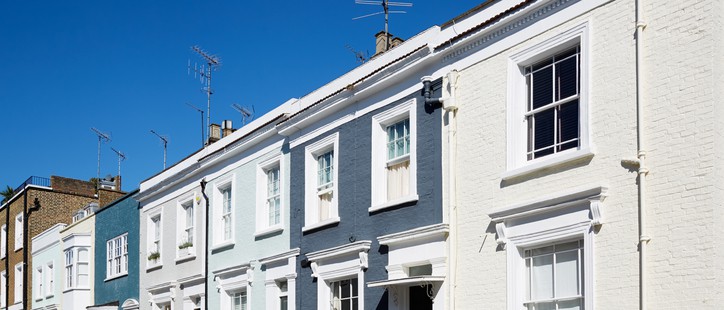Our Opinion: 2019
UK property becoming more affordable

UK house prices are set to tread water while incomes rise, making property more affordable.
The numbers aren’t looking good for residential property investors. House price growth in the US fell to a mere 1% at the beginning of this year. Look at global data across the 18 largest economies in the world and things don’t look much more encouraging. This could be the year in which we see global growth dip to its lowest pace in a decade. Investment is slowing fast.
The UK is no outlier here. The Nationwide index and the Rightmove Asking Prices index show prices and asking prices respectively to be all but flat. The Halifax House Price index shows a better annual number but suggests prices fell mildly in the summer. You can see the same trend in Hometrack data, which suggests that the falling prices we have seen in London are beginning to spread: over a third of homes are now in areas with annual price falls (the higher value the market the more likely this is), although the absolute levels of falls is small. So what next? Most analysts expect the market to tread water from here – although a successful Brexit deal would lead to a little London bounce.
This is probably correct. There is still some support for prices meaning prices are generally flat. Housing construction is falling slightly (so the supply of housing is not rising much). Interest rates are low and will go lower if Brexit goes horribly wrong. The banks’ wholesale funding costs have also edged down, and that should soon feed into mortgage rates. At the same time wages have jumped (year-on-year growth excluding bonuses hit an 11-year high in April) and household disposable incomes are also on the up.
That makes houses – even at today’s inflated prices – seem more affordable. Values are likely to be at least supported by healthy labour market conditions and low borrowing costs. That said, there isn’t much to push prices much higher. Property is still expensive relative to incomes. The tax and regulatory hit to buy-to-let is discouraging buyers in that market. An unwelcome (to big property owners, at least) overhaul of property taxation may be on the way. And the Help to Buy scheme (which has played a clear part in pushing prices up) is likely to be scaled back soon. Put all those factors into the mix and it is hard to see a rebound in prices in 2019 or beyond.
The key thing to bear in mind there is that this is not bad news – unless you very recently paid too much for a house. UK property is still too expensive relative to average earnings. That makes it tough to get on the ladder and tough to move up the ladder.
The fact that house prices are not really rising in nominal terms, combined with the small real rise in wages over the last two years, is beginning to change this situation. In 2007, Nationwide’s house price to earnings ratio for the UK was 5.42. At the end of 2016 it was 5.25. Today it is 5.03 times. That’s not ideal – but if this gentle drift down continues and we end up at more like four times, it will suddenly be an awful lot easier to buy (and sell) houses. That would be a very good thing.
21st October 2019
